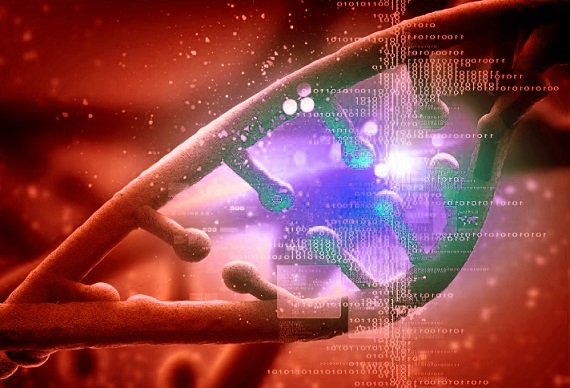Nikhil Prasad Fact checked by:Thailand Medical News Team Sep 25, 2025 4 months, 2 weeks, 5 days, 11 hours, 54 minutes ago
Medical News: How the Virus Alters Human Cells
Researchers from the Institute of Biotechnology, Helsinki Institute of Life Sciences, University of Helsinki and the Faculty of Biological and Environmental Sciences at University of Helsinki have uncovered how SARS-CoV-2, the virus behind COVID-19, hijacks human cells by reshaping RNA modifications. Their study focused on a chemical tag called m6A that can switch genes on or off and even change how RNAs behave. Using a powerful method known as direct RNA sequencing, the team traced in detail how infection alters both viral and human genetic messages. According to this
Medical News report, these changes provide clues to why the virus is so efficient at spreading and how it disrupts normal cell functions. The gene changes that the virus causes are also worrisome as it can affect the long-term health of humans and also contribute to shorter lifespans.
 Viral RNA Modifications Found to Rewire Human Genes in COVID-19 Infections
Key Findings in Viral RNA
Viral RNA Modifications Found to Rewire Human Genes in COVID-19 Infections
Key Findings in Viral RNA
The scientists discovered that the virus itself carries 16 consistent m6A modification sites across its genome. Most were found in the ORF1ab and spike (S) genes, which are crucial for viral replication and for helping the virus enter human cells. By tagging these regions, SARS-CoV-2 may control how fast it multiplies and how effectively it infects. Interestingly, the study showed that viral subgenomic RNAs (smaller RNA fragments the virus makes) were more heavily modified than the full-length genome, suggesting the virus fine-tunes its own machinery during different stages of infection.
Effects on Human Genes
The impact on human cells was even more striking. Researchers found 254 spots in human RNA where m6A modifications shifted significantly after infection. Out of these, 119 sites showed decreased modification and 135 sites showed increases. Many of the decreases were linked to the neurotrophin signaling pathway, a vital process that supports brain cell survival and repair. This raises the possibility that COVID-19 might trigger neurological symptoms by interfering with these pathways. On the other hand, some immune-related genes, including IRF3 and TRIM family genes, showed increased m6A changes, hinting that the virus might be manipulating the body’s antiviral defenses.
New RNA Isoforms and Gene Switching
Beyond chemical tags, the team also discovered that the virus pushes human genes to create new RNA isoforms—alternative versions of the same gene. They found a new version of the HIST1H2BK gene, which was far more active in infected cells. Overall, 24 genes underwent significant isoform switching, affecting cellular energy production in mitochondria and immune pathways like platelet aggregation. These shifts may explain why COVID-19 disrupts metabolism and causes wide-ranging symptoms.
What It Means
The study paints a picture of SARS-CoV-2 as more than just a virus that multiplies inside cells—it is a master manipulator of human genetic machinery. By rep
rogramming RNA modifications and gene activity, it may set the stage for long-lasting effects, including neurological problems and immune dysfunction. These insights also open the door to future treatments that target RNA modifications to block the virus or ease its impact on human health.
The study findings were published in the peer reviewed journal: Access Microbiology.
https://www.thailandmedical.news/articles/coronavirus
In conclusion, this research shows that COVID-19 is not only a respiratory disease but also a condition that rewires genetic communication inside our cells. The discovery that the virus interferes with brain-related pathways through RNA modifications is especially concerning, as it may help explain long COVID symptoms such as brain fog and fatigue. By revealing these molecular tricks, the study provides a foundation for developing therapies that could prevent the virus from hijacking cellular processes.
For the latest COVID-19 News, keep on logging to Thailand
Medical News.
Read Also:
https://www.thailandmedical.news/news/sars-cov-2-triggers-methylation-shifts-in-long-non-coding-rna-to-suppress-immunity-and-promote-viral-persistence
https://www.thailandmedical.news/news/yale-researchers-warn-of-dna-methylation-dysregulation-in-long-covid
https://www.thailandmedical.news/news/breaking-covid-19-news-study-finds-that-m6a-methylation-plays-a-key-role-covid-19-infections
